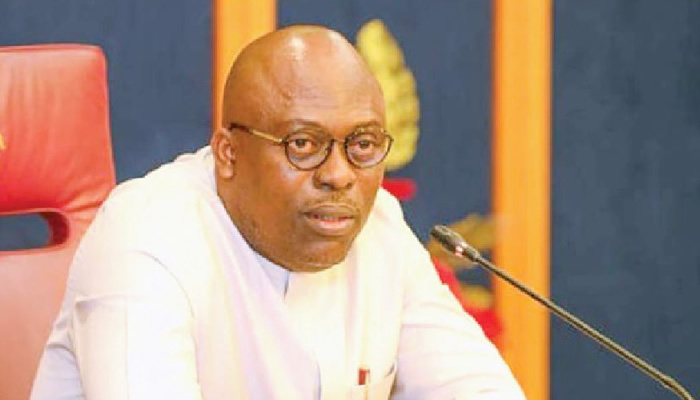The Political Crisis in Rivers State: A Test of Resilience and Unity
The suspension of Rivers State Governor Siminalayi Fubara has plunged the state into a political crisis, sparking concerns and anxieties among residents. However, amidst the turmoil, Fubara remains resolute, assuring his supporters that the ongoing challenges will ultimately strengthen the people rather than weaken them. He emphasizes the importance of faith, unity, and peaceful conduct during this trying period. Fubara’s message of hope and resilience resonates with his constituents, who are grappling with the uncertainty surrounding the state’s political future.
During a Sallah visit by Muslim leaders, Fubara expressed his unwavering belief that the current situation is part of a divine plan leading to a greater purpose. He acknowledged the emotional toll the crisis has taken on many but emphasized that there may be forces at play beyond human comprehension. Fubara reaffirmed his commitment to justice, equality, and a society free from oppression. He urged his supporters to trust in God’s process and remain patient, drawing parallels to religious history and emphasizing the virtue of perseverance.
While acknowledging the challenges, Fubara cautioned his supporters against resorting to violence or provocative acts. He stressed the importance of maintaining peace and respecting constituted authority, highlighting the need to avoid playing into the hands of those seeking to destabilize the state. Fubara’s call for peaceful conduct reflects his commitment to upholding the rule of law and ensuring the safety and well-being of all residents.
Solidarity and Calls for Restoration of Authority
The Muslim community in Rivers State has expressed unwavering solidarity with Governor Fubara, commending his inclusive approach to governance and recognition of the Islamic faith. Muslim leaders contrasted Fubara’s inclusivity with the previous administration’s declaration of Rivers as a "hundred percent Christian state." They offered prayers and support to Fubara as he navigates the political challenges facing the state. Their solidarity highlights the governor’s ability to bridge religious divides and foster unity among diverse communities.
Recognizing the impact of the political crisis on the state’s governance, Muslim leaders called on President Bola Tinubu to review the emergency rule imposed on Rivers State and restore Governor Fubara’s full authority. They emphasized Fubara’s effective performance despite the crisis and urged a swift resolution to the political impasse. This call for restoration of authority reflects the belief that Fubara is the legitimate leader and best equipped to govern the state.
Legal Challenges and Allegations of Misconduct
The political crisis has also sparked legal challenges and accusations of misconduct. Civil society organizations (CSOs) are preparing to sue the Sole Administrator of Rivers State, Vice Admiral Ibok-Ete Ibas (retd.), over alleged unlawful spending of state funds. The CSOs argue that Ibas lacks the legal authority to manage state finances without an approved budget and have called for an immediate halt to such spending. This legal action reflects concerns about financial accountability and transparency during the period of emergency rule.
Adding to the complexity of the situation, allegations have surfaced against Governor Fubara regarding his alleged involvement in the bombing of the state House of Assembly in 2023. These allegations, made by the former Head of the Rivers State Head of Service, Dr. George Nweke, have been vehemently denied by Fubara’s supporters. An activist, Gani Topba, has threatened a defamation suit against Nweke, demanding an apology or a legal battle. The conflicting claims and accusations further exacerbate the political tensions in the state.
Collaboration and Concerns of Oil Host Communities
Amidst the political turmoil, a different kind of engagement is taking place between oil host communities and Pipeline Infrastructure Nigeria Limited (PINL), the company responsible for securing the Trans Niger Pipeline (TNP). Host communities from Rivers, Imo, and Abia states have commended PINL for its effective pipeline surveillance, which has resulted in improved production and revenue for the country. However, they also raised concerns about fair treatment from the Federal Government, employment opportunities, and corporate social responsibility programs.
The stakeholders’ meeting highlighted the importance of collaboration between oil companies and host communities to ensure the security of pipelines and address the needs of the local population. While acknowledging PINL’s positive contributions, the communities emphasized the need for greater involvement in oil exploration and exploitation, as well as improved benefits and social amenities for the host communities. Their concerns reflect the ongoing challenges faced by oil-producing regions in Nigeria, where the benefits of resource extraction often fail to reach the local population.














